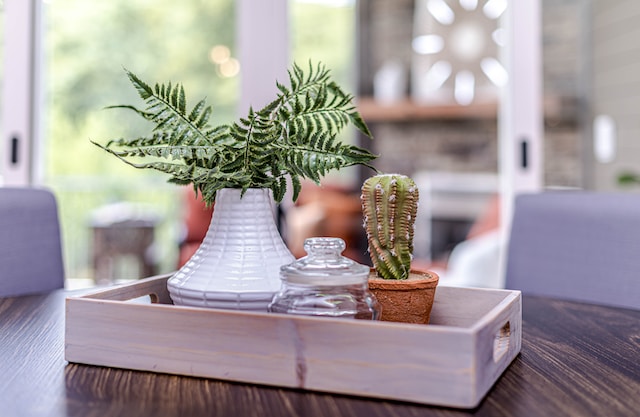The Psychology of Home Buying: How Emotional Triggers Influence Purchasing Decisions
Buying a home is a major decision that involves a lot of factors, from location and size to price and style. But did you know that emotions play a big role in the homebuying process? As much as I advise my clients to not make an emotional purchase, the truth is that it's very hard to avoid. In fact, many of our purchasing decisions are driven by subconscious emotional triggers that we may not even be aware of. In this blog post, we'll explore seven key emotional factors that influence our decisions when buying a home.

- The Power of First Impressions: When it comes to home buying, first impressions are everything. In fact, studies show that potential buyers form an opinion about a property within the first seven to ten seconds of entering a home. If that initial impression isn't good, then it's very unlikely that something will change that negative feeling into a positive one. This means that curb appeal, staging, and even the smell of a home can have a big impact on whether or not a buyer feels emotionally connected to a property.
- The Role of Nostalgia: Nostalgia is a powerful emotion that can influence our purchasing decisions in many ways. For example, if a buyer grew up in a home with a certain type of architecture or style, they may be more drawn to properties that have similar features. Similarly, if a buyer has positive emotions or experiences associated with certain floral smells or landscaping features, then they may be more likely to choose a home that reminds them of those good memories.
- The Importance of Personalization: When it comes to making a home feel like your own, personalization is key. Buyers are often drawn to properties that feel unique and reflect their own style and taste. This is why staging is such an important aspect of the homebuying process. By adding personal touches like artwork, pillows, and other decor items, sellers can help buyers imagine themselves living in the space. Important to note, however, is that these personal touches must be done in moderation. It is vital that the living space doesn't feel overcrowded and cluttered, as it can make a buyer feel that the home is too small or doesn't have sufficient storage space.
- The Influence of Social Proof: Social Proof is the idea that people are more likely to make a decision based on what others are doing. In the context of home buying, this can mean looking to friends or family for advice, as well as paying attention to online reviews and testimonials from other buyers or sellers regarding their agents, brokerages, or sellers. Buyers are often reassured by knowing that others have had positive experiences with a particular property or person.
- The Power of the "Dream Home": For many buyers, the home buying experience is about finding their "dream home" - a property that checks all the boxes and feels like the perfect fit. This concept of the dream home is a powerful emotional trigger that can influence our decision-making. Buyers may be more likely to overlook certain flaws or pay a higher price if they feel like they've found their dream home.

- The Fear of Missing Out (FOMO): The fear of missing out, or FOMO, is a common emotional trigger that can influence our decision-making when it comes to home buying. Buyers may feel pressure to make a quick decision if they fear that a property will be snapped up by another buyer. This can lead to impulsive decisions and overspending. For example, almost all of the homebuying that occurred during the pandemic affected years of late 2020 to mid-2022 were due to FOMO. Sellers received dozens of offers on homes for tens of thousands of dollars over market value because buyers had a "fear of missing out" due to multiple offers, historically low inventory, and desperation. As a buyer, it's important to keep your emotions in check and not allow yourself to become desperate for any particular property or you could end up spending more than you want.
- The Undue Influence of Family and Friends: Finally, family and friends can have a big impact on our homebuying decisions. Buyers may be influenced by the opinions and advice of loved ones, even if it goes against their own preferences or instincts. This is different than Social Proof. With Social Proof, buyers are actively looking for validation or confirmation from friends, family, or online reviews. With undue influence, however, family and friends may involve themselves even when their opinions and views aren't wanted, creating an undue influence upon the buyer that goes contrary to their instinct. This could potentially cause a buyer to either decide for or against a particular property based on the preferences of that friend or family member. For example, a parent may provide a gift of money to the buyer to help with their closing costs or down payment. This can sometimes make the "gifter" feel that they have control over what the buyer decides to purchase. This can easily create a toxic situation where the buyer is looking for a home based on someone else's needs or desires, and neglects to take their own needs and desires into account. As a buyer, it's important to remember that ultimately, the decision to buy a home should be based on your own needs and wants, not those of others. You are the one that will be living in the home.

The psychology of home buying is complex and involves many emotional factors that influence our decision-making. By understanding these triggers and using them to our advantage, buyers and sellers can make more informed and satisfying decisions in the homebuying process.



Comments
Post a Comment